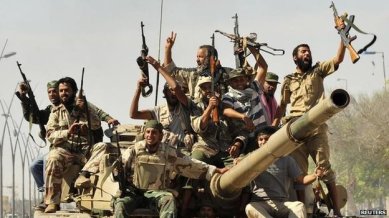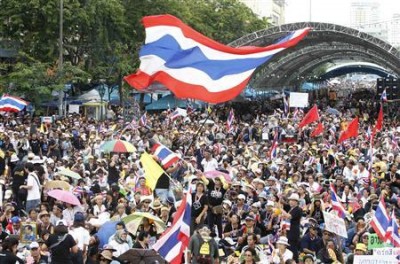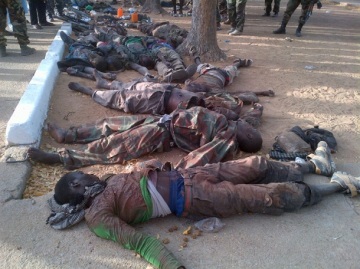Since Colonel Gaddafi was overthrown in 2011 Libya has been subject to instability and lawlessness. But what is happening now and why is Libya lawless now?
Who is in control of Libya?
This is the issue. At the moment nobody is in control of Libya. Approximately 1700 armed groups, with a variety of different goals, are in combat in Libya at the moment. These groups are mostly looking for money and power, but at the moment the country is in total chaos with all the conflict between these groups.
Were these groups on the same side?
During Gaddafi’s era the groups were united by their hatred of Gaddafi, however that was it. The groups all have slightly differing interests, and no single group ever led the way in opposing Gaddafi. The groups have little knowledge of how politics works and how the rule of law operates, which has led to further political troubles since 2011. This is demonstrated by the fact that there has been 5 different governments in Libya in the past 4 years.
Is any help outside Libya provided?
There is some help provided, but this is minimal. The US government said they would help Libya retrieve any stolen weapons from the Gaddafi era, but not much more than that. Despite this, many of the stolen weapons have not been recovered and most of them have ended up in the hands of these armed groups throughout the country today.
Other African countries are fearful over where these stolen weapons will end up. Many people believe that the stolen weapons could deepen the instability in countries such as Mali and Niger, as well as in Sinai, Gaza and even Syria.
Foreigners
There have been a number of attacks on foreigners, including a number of attacks on diplomats (an official representing a country abroad). This includes the killing of the US Ambassador Christopher Stevens in Benghazi. Furthermore, western oil firms were seized by many groups causing a decline in the global oil market.
Which group is the most dangerous?
Ansar al-Sharia is potentially the most dangerous armed group in Libya, as it is blamed for the death of US ambassador Christopher Stevens and for forming relations with a number of Islamist groups. Colonel Khalifa Haftar also has a powerful militia (armed group), and has a goal of defeating Ansar al-Sharia.
The people of Libya
The troubles in Libya lead many to live in fear, and there is little evidence that change will happen. The government is being controlled by these armed groups, but it is hoped (by the government) that some groups will combine to form a sort of national army for the country to stop the continuance of instability and lawlessness.
What do you think is the solution? How can the government stop these armed forces?
Thanks for reading and please do share,
Digestible Politics
https://www.facebook.com/pages/Digestible-Politics/476112109093593?ref=hl
https://twitter.com/Digest_politics








